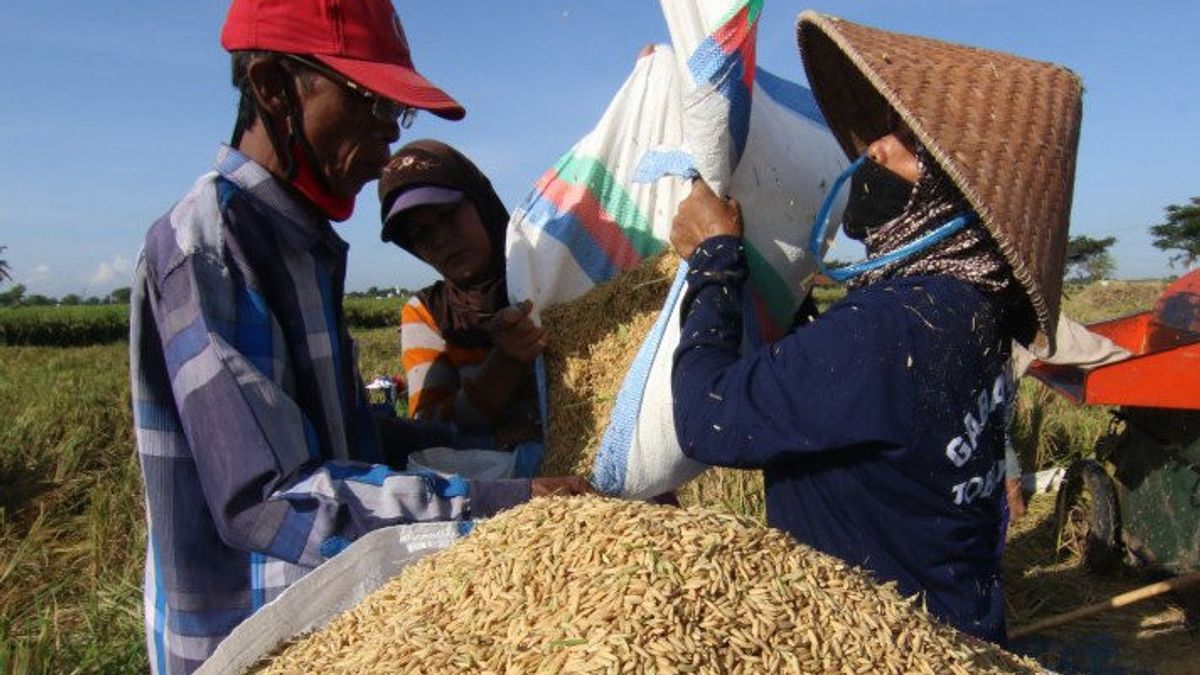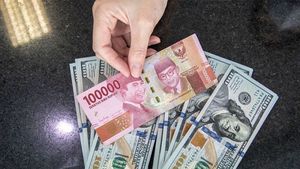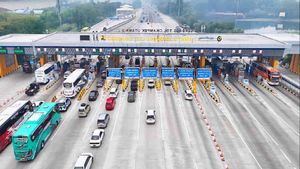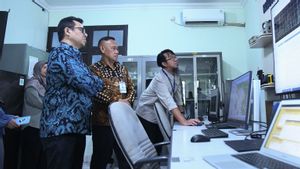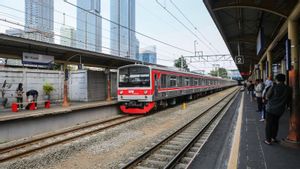JAKARTA - The recent volatility in the prices of a number of food commodities reminds us of our fragile food security because it depends on imports. Claims about food self-sufficiency that are often touted by the Ministry of Agriculture have also been questioned by a number of parties. Instead of just claiming success, the Ministry of Agriculture was asked to seriously fix the production of food commodities in the country.
Member of Commission IV of the DPR RI, Firman Subagyo, told reporters on Monday, March 7 yesterday that the parliament had actually reminded the government, especially the Ministry of Agriculture, about the importance of food production for national food security. In fact, before the arrival of the pandemic and the Russia-Ukraine conflict, which made food commodity prices go up.
"This has always been a controversy. If we say our food production is good, why should Indonesia import it. This must be evaluated. Don't say there is a surplus, but the goods are not available. If there is a surplus, where is the goods? together. We are not enough just with statements," he stressed.
Seeing this, he also questioned the performance of the Ministry of Agriculture, which should focus on securing food production.
"If we don't prepare ourselves as well as possible, two major crises will emerge in the world, namely the energy crisis and the food crisis," he said.
He saw that Indonesia's food production could not be expected. According to him, achieving food self-sufficiency is not an easy matter. However, Indonesia must prepare optimally. The step that should be taken by the government, said Firman, is to make an inventory of all land that is possible to be used as land for food production.
"The size is very simple. In 2019, the (Ministry of Agriculture) budget was around Rp. 6 trillion, now it is tens of trillions. With a budget of tens of trillions it is very easy to measure it. The Ministry of Agriculture's output is food production, if until now we are still importing, it means that it is a failure , there is a miss management, "he said.
This Golkar Party policeman referred to the UN statement which had released the importance of anticipating food needs, in line with the population growth which continued to increase significantly. A country with a large population like Indonesia is also asked to prepare because it is believed that it will feel the impact more.
"We must not depend on other countries because of imports," he said.
Just rhetoricSimilarly, Professor of the Faculty of Agriculture, Bogor Agricultural University (IPB) Dwi Andreas said that the recent fluctuations in the prices of a number of commodities were mostly due to factors from global commodity trade. The price increase is increasingly felt considering that for food commodities, Indonesia relies heavily on imported supplies.
"Wheat, garlic are almost 100 percent imported, soybeans are 97 percent imported, sugar is 70 percent imported, meat is more than 50 percent imported. When world prices rise after the pandemic, we will definitely be affected," said the Chairman of the Indonesian Farmers' Seed Bank Association (AB2TI). ) the.
Vulnerability to food security is getting bigger, said Dwi, with a number of events that are unpredictable and beyond the government's ability to control. He gave an example of this happening to soybeans, whose prices suddenly spiked due to the decline in world production. With the lack of production, not only soybean prices rose, the price of other vegetable oils, such as palm oil, also rose.
Ideally, said Dwi, domestic food needs can be met by domestic farmers. However, he continued, this is very difficult to happen because of the high disparity in the price of domestically produced food with imported products.
He saw that efforts to increase domestic production itself, especially by the Ministry of Agriculture, were only mere rhetoric.
"Indeed, there are examples if the Ministry of Agriculture has succeeded? All kinds of programs, only programs. Policies (mandatory planting) and targets for self-sufficiency in garlic alone, the results are no longer clear," said Dwi.
The failure to increase production itself, said Dwi, can be seen from data on imports of 8 main food commodities which continue to increase. He said that in 2008, 8 million tons of food commodities were imported. Ten years later, its volume jumped to 27.6 million tons.
Slightly decreased in 2019 to 25 million tons, then increased again to 26 million tons in 2020 and rose again to 27.7 million tons in 2021. Apart from increasing demand, this increase in food imports was due to the disparity in prices of local and imported food commodities.
The cheaper price of food commodities with a number of tariff incentives, continued Dwi, has made farmers reluctant to produce.
As a result of low food production, INDEF researcher Rusli Abdullah stated, importation has inevitably become a mainstay to meet the increasing consumption needs. Unfortunately, according to Rusli, the import itself is often done without the right timing.
"During the pandemic there is no correct timeline regarding imports, instead it is carried out during the (domestic) harvest," he said.
According to him, to carry out imports correctly, the Ministry of Agriculture should provide valid data. He emphasized that valid data is needed so that when imports are carried out they do not attack farmers' prices.
"If we need 40, the import is 60, so sorry for the farmers," said Rusli.
He gave an example, in 2018, the government has used satellite imagery to calculate the area of rice fields. This results in a more accurate calculation of land and rice production. "Now rice is safe. There has been no chaotic price increase since 2018. Because valid data is issued by BPS. So we can't play around now," he added.
Specifically regarding meat, he saw that the Ministry of Agriculture had not yet focused on dealing with the issue of supply shortages which had to be covered by imports.
"Why hasn't the government built a centralized farm that provides meat? You can ask the Ministry of Agriculture, I see that this has not become a priority, because the focus remains on rice, there is no budget for animal supply," he said.
In the future, he asked for political support, so that the government could develop large-scale cattle farms.
The English, Chinese, Japanese, Arabic, and French versions are automatically generated by the AI. So there may still be inaccuracies in translating, please always see Indonesian as our main language. (system supported by DigitalSiber.id)
